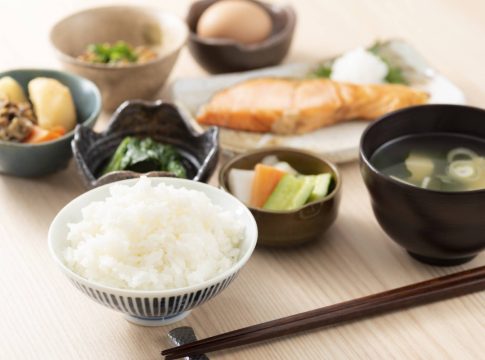Nourishing the Mind: The Benefits of Japan’s Washoku Diet on Mental Health
The connection between what we eat and how we feel is a topic of growing interest, particularly in discussions around mental well-being. Recent research highlights that Japan’s traditional washoku diet may not only contribute to physical health but also serve as a potential ally in the fight against depression.
Understanding Washoku: A Nutritional Embrace
The washoku diet, celebrated for its emphasis on fresh, seasonal ingredients, is rich in fish, soy products, grains, and vegetables. Central to this diet are staples like white rice, miso soup, and an array of vegetables, including mushrooms and seaweed, all served alongside green tea. This thoughtful approach to meals encourages a balance of nutrients that are crucial for both body and mind.
The Research: Insights from a Large Study
In a comprehensive study published in the Psychiatry and Clinical Neurosciences journal, researchers surveyed approximately 12,500 employees across five major companies in Japan. The study spans several years, from 2018 to 2021, and reveals some compelling findings regarding mental health.
- Participant Demographics: The majority of respondents were male, with an average age of 42.5 years.
- Depression Rates: Notably, around 30.9% reported experiencing depressive symptoms, which may include feelings of despair or lack of motivation.
To assess dietary habits, researchers asked participants about their food consumption over the past week, developing a simple scoring system to evaluate adherence to the washoku principles. The findings suggest that those who followed this traditional diet more closely often reported lower levels of depressive symptoms.
The Emotional Impact of Diet
Food choices can significantly shape our mental health. A diet abundant in omega-3 fatty acids found in fish, along with the vitamins and minerals present in vegetables and soy products, can enhance mood and cognitive function.
Practical Tips for Incorporating Washoku
If you’re looking to embrace aspects of the washoku diet to possibly improve your mental well-being, consider these steps:
- Start with Small Changes: Introduce a variety of whole foods into your meals, focusing on fresh vegetables and fish.
- Mindful Eating: Take time to savor your meals. Slow down to appreciate the colors, textures, and flavors; this practice can bring mindfulness to your eating experience.
- Cook at Home: Preparing your meals from scratch can be comforting and empowering. Opt for simple, traditional recipes that utilize seasonal ingredients.
- Stay Hydrated: Remember to drink plenty of water or enjoy green tea, a staple in washoku cuisine, known for its health benefits.
Conclusion: A Holistic Approach to Health
While dietary changes alone may not be a cure-all for depression, integrating the principles of the washoku diet could be a valuable component of a holistic approach to mental wellness. Food not only sustains our bodies; it also nurtures our minds. By choosing nourishing options and developing a mindful relationship with food, we take a proactive step toward enhancing our emotional health.
As we continue to explore the intricate links between diet and mental well-being, let us remember that every small choice leads us back to a place of balance and health. By nurturing ourselves with wholesome foods, we invite more peace and joy into our lives.

Covers wellness, nutrition, mental health, and daily life tips.
Bio: Talia brings a background in health journalism and holistic living to help readers live better, one tip at a time.

